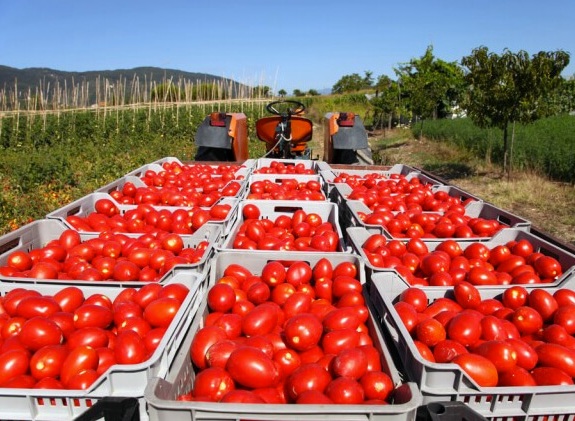
Source
Hello guys, in this my articles on the value of tomato in Nigeria i will be covering the following:
- issues
- challenges
- strategies
Tomato value chain
Value chain can be described as the chain that links various stages a product goes through, from its production, handling, processing and distribution to the consumer.
Tomato Wastage
tomatoes produced in Nigeria is estimated as annual loss due to poor food supply chain management, price instability resulting from seasonal fluctuation in production and the supply preference of farmers and middle men to urban market than processors due to low farm gate price tomato wastage occurs mainly at the processing, packaging and distribution stages. This is due to the poor processing technology, lack of good storage system and the transporting system used for the distribution of fresh tomatoes.

Source
Distribution of Tomato
The distribution component of the value chain is separated in three parts. First, part of the tomato is sold to end users either in the vicinity of the farm or through wholesale marketers to local market or processors. Processors get their supplies directly from the farmers or the dealers. This component of the value chain is not organised in Nigeria, resulting in little or no value addition to the product.
Marketing
Most of the fresh tomatoes produced in Nigeria are sold in the open market in baskets to the middlemen while roadside vendors sell those sold to the consumers in small plates and baskets. The tomatoes for processing are supplied to the companies in baskets by the middlemen. However, currently there are no packaging systems for fresh tomato. other countries except for a few supermarkets, where tomatoes are kept in the refrigerator until sold.
Tomato Processing
Traditionally, the most important processing methods of processing used are concentration and drying either fruit pieces or to a powder. Processing allows tomatoes to be kept longer, provides a more varied diet and also means that tomatoes are consumed out of season. For commercial purposes, it is a way of generating extra income and more products are offered to buyers Tomato processing has attracted some processing companies in Nigeria. Most of the processing companies are into packaging of concentrates rather than actual processing although a few of them process fresh tomatoes.
Challenges of Developing Tomato Value Chain
There are some basic challenges of developing tomato value chain, they include the following:
- Production constraints
- Processing and storage
- Marketing
- Funding
Conclusion
The propose of this article is contribute to the development of tomato value chain in Nigeria and also help to bridge the gap in knowledge and to promote the tomato value chain. Although tomato is produced in large quantities in the northern part of Nigeria, a lot of it is lost due to it's perishability and lack of processing companies to process the raw tomatoes into paste and other products.
Furthermore, only a few of the tomato varieties in Nigeria are suitable for industrial processing. The value chain approach could be used to improve tomato production through an improved process technology to reduce the losses arising due to the perishability of the harvested product.
